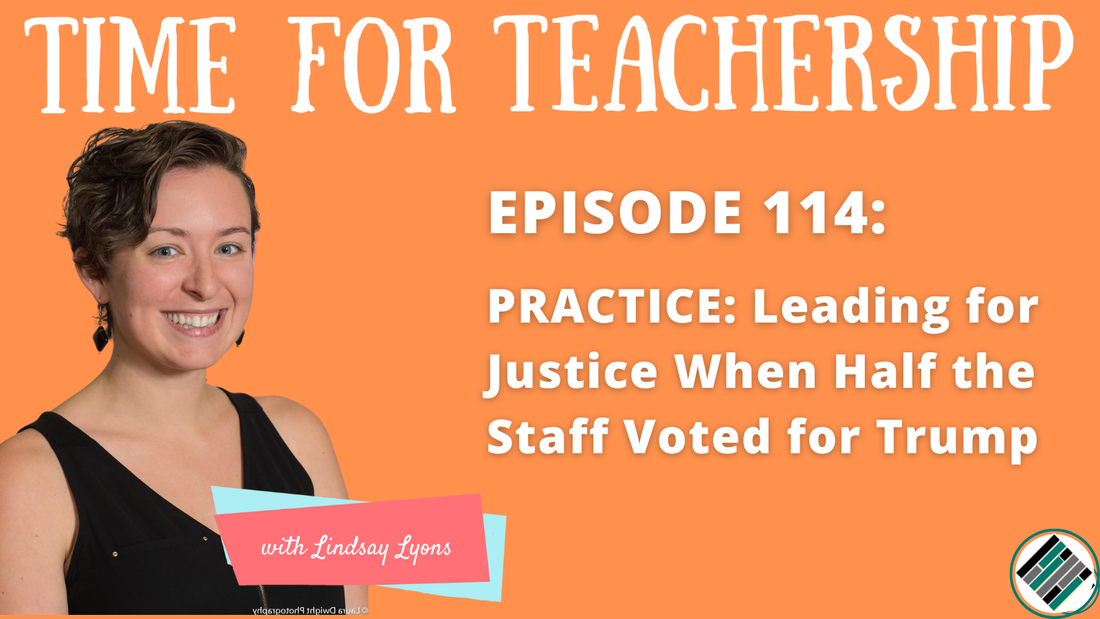
Listen to the episode by clicking the link to your preferred podcast platform below:
Leaders, if you need to navigate challenging staff and/or larger community contexts or disagreements.
Origins of this Episode Leadership Coaching Question: How can we work with differing opinions among staff or between administrators and families? (How do you arrive at a common understanding?) Another Leadership Coaching Question : How can we bring our DEI team’s “theory” work to the whole staff in a practical way? What Can We Do? First, some grounding context: Upholding the dignity of all people and advancing justice are the goals. We can’t lose sight of those. Facts matter. Scholars, Diana Hess and Paula McAvoy distinguish between settled empirical issues (these are factual realities and we don’t debate them) and policy issues (we can debate what’s the best way forward). Action Step: Ground the work and discussions in shared values. In processing injustices and conflict, center human emotions and “BASE” needs (i.e., (belonging, autonomy, survival, and enjoyment) instead of personal opinions. When we disagree, if we can identify the underlying value that’s the reason that we take our specific position, it’s more likely we can connect and hear the other person. For example, if someone says the value that underlies my position is that I am afraid for me or my family’s safety. That is something we can likely all resonate with to some degree. Tip: If you haven’t already identified shared values as a staff, I recommend doing this as your next meeting activity! (You can get a sample agenda for such a meeting here.) Action Step: Collect data on students’ experiences and center staff conversations in “street data.” (Check out the book, Street Data, by Jamila Dugan and Shane Safir!) Action Step: Invite students to staff meetings and have students on leadership teams as much as possible. Action Step: Use staff meetings to practice via protocols staff can also use with students, families, teams, and/or community members, depending on their role. What’s in the 4 Staff Meeting Agendas Freebie? .
Tip: Check out the 5-minute videos for each of these available on YouTube. Sneak Peek: Next month on the podcast, we’ll be starting a brand new #UnitDreaming series featuring educators who create a justice-centered unit outline right on the show! To help you do this work with your staff, I’m sharing my Staff Meeting Agendas with you for free. (You’ll get one agenda per week for a month. Yes, slide decks and live links to all related resources are included!) And, if you’re looking for more details on the ideas in this blog post, listen to episode 114 of the Time for Teachership podcast. If you’re unable to listen or you prefer to read the full episode, you can find the transcript here. Quotes:
If you enjoyed this episode, check out my YouTube channel where I explain how to diagnose an adaptive challenge:
0 Comments
Leave a Reply. |
Details
For transcripts of episodes (and the option to search for terms in transcripts), click here!
Time for Teachership is now a proud member of the...AuthorLindsay Lyons (she/her) is an educational justice coach who works with teachers and school leaders to inspire educational innovation for racial and gender justice, design curricula grounded in student voice, and build capacity for shared leadership. Lindsay taught in NYC public schools, holds a PhD in Leadership and Change, and is the founder of the educational blog and podcast, Time for Teachership. Archives
May 2024
Categories |

 RSS Feed
RSS Feed